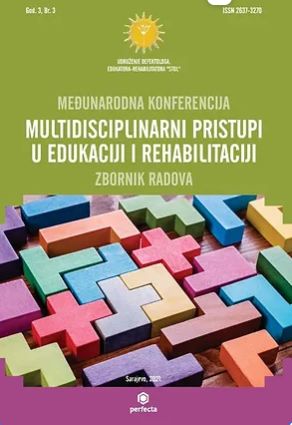RODITELJSKI STRES U OBITELJIMA DJECE S TEŠKOĆAMA U RAZVOJU I STRATEGIJE SUOČAVANJA
PARENTAL STRESS IN FAMILIES OF CHILDREN WITH DISABILITIES AND COPING STRATEGIES
Author(s): Ivona Grbavac, Matea RakoSubject(s): Social Sciences, Education, Sociology, Family and social welfare, Inclusive Education / Inclusion
Published by: Udruženje defektologa, edukatora-rehabilitatora (STOL)
Keywords: parenting; parental stress; coping strategies; support;
Summary/Abstract: Being a parent is considered to be the most important and fulfilling role. However, parenting brings some different requirements and challenges. Determining disability in a child is a traumatic event for parents and often results in higher levels of parental stress, which depends on many factors such as: family size, characteristics of the child and his disabilities, parental characteristics, stress coping strategies, career, perception of disability, family cohesion, socio-economic situation, society’s attitudes towards disability, availability of services, etc. It is very important for parents to find appropriate coping strategies on a personal, family and social level. Therefore, the support of the system and society shouldn’t be left out and neither the inclusion of parents in the activities of the local community because with a sense of acceptance and understanding, the parent is empowered emotionally and socially, which is reflected in the upbringing of his child. The aim of this paper is to provide a review of the causes of parental stress, the availability and importance of both formal support services by professionals and institutions and informal support provided by the wider social environment, friends, religious communities and the media. Quality support can have a significant impact on the development of parental competencies. Parents need to be placed at the center of interest of professionals and society precisely because they are the most important educators of their children and without harmonious cooperation the success of interventions is lacking.
Journal: Multidisciplinarni Pristupi u Edukaciji i Rehabilitaciji
- Issue Year: 3/2021
- Issue No: 3
- Page Range: 99-111
- Page Count: 13
- Language: Bosnian, Croatian, Serbian

